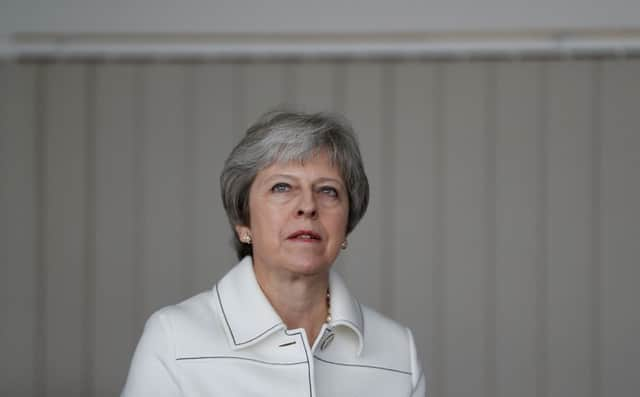Greg Wright: The step the Prime Minister could take to ease Brexit uncertainty


This, dear readers, is not a bleak piece of “remoaner” propaganda. It is an honest assessment of the post Brexit headaches we could face provided by the EEF, the politically neutral manufacturers’ organisation, which is exasperated by the lack of clarity over the Government’s customs proposals.
In particular, the EEF is calling on the Government to abandon further examination of the so-called ‘max fac’ customs proposal, describing the idea that it could be implemented by 2020 as “naïve” and “wholly unrealistic”.
Advertisement
Hide AdAdvertisement
Hide AdSo what is the “max fac” option and why is the EEF so averse to it? The Government has promised to take Britain out of the EU customs union and is considering two possible replacement options.
One is max fac, or maximum facilitation, in which Britain and the EU would be entirely separate customs areas but would try to use technology to reduce friction and costs at the border.
Max fac has attracted extra scrutiny in the last week after Britain’s most senior tax official said that such a customs arrangement could cost businesses up to £20 billion a year.
The other is a “customs partnership”, in which Britain would cooperate with the EU more closely and collect tariffs on its behalf, so declarations are not required for goods crossing the border.
Advertisement
Hide AdAdvertisement
Hide AdSo which solution will the Government choose? The clock is ticking and the stakes are high. Stephen Phipson, the EEF’s chief executive, took the sensible step of paying a visit to the US-Canadian border to see how technology is being used there to speed up customs checks. He has now returned and is convinced the “max fac” option, which relies on technology, is a non-starter. He wants the Government to stop thinking about “max fac” as a solution and focus its efforts elsewhere.
In a letter to the Business Secretary, Greg Clark, Mr Phipson revealed that, despite a decade of substantial investment on both sides of the border by two “willing partners” only 100 Canadian companies are able to use a fast track system across the border. The vast majority of goods are still subject to normal - and therefore time consuming - customs checks.
To quote Mr Phipson: “The Canadian process is particularly efficient and well managed, but the reality is that this is time consuming and at busy times often has long delays. Apply that to Dover and the consequences are horrendous.”
In response, a Government spokesman told me that it had created a Border Planning Group, “which works to ensure we identify and mitigate risks when it comes to the readiness of our ports”.
Advertisement
Hide AdAdvertisement
Hide AdThe spokesman added: “Work is ongoing to develop the options we have presented on customs, in order to meet our commitments to ensuring UK-EU trade is as frictionless as possible; avoiding a hard border between Northern Ireland and Ireland; and enabling us to establish an independent international trade policy.”
Mr Phipson is certain the technology supporting any potential “max fac” arrangement will not be smart enough to provide a frictionless border between Britain and the EU in time for December 2020. So he wants the Government to start devising a solution that has a realistic chance of working. Time, alas, is not on the Government’s side. The uncertainty over our future customs relationship with the EU is causing sleepless nights for small business owners across Britain, who fear it will soon become much harder to do business with the EU, despite the Government’s assurances. But it is not too late.
As the Tory MP Charlie Elphicke has argued in The Yorkshire Post, Britain needs a new department for security and border taxes, to deal with the colossal increase in customs declarations that will inevitably follow Brexit. A single department would reduce waste and, hopefully, increase efficiency at our borders.
To create such a department would require boldness and vision; it would be a display of real leadership in testing times.
But is the Prime Minister willing to deliver it?